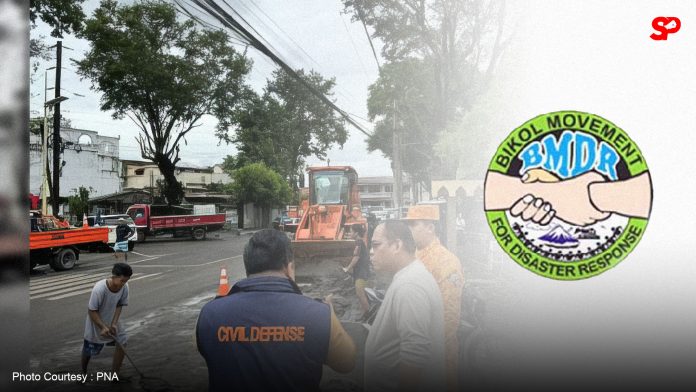By Michelle Ducut
The Bikol Movement for Disaster Response (BMDR) is urging for a strengthened people’s movement to address the needs of those affected by Typhoon Kristine in the Bicol region. Following the storm’s arrival in the Philippine Area of Responsibility (PAR) on October 21 and its intensification to a Severe Tropical Storm by October 23, the Bicol Emergency Operations Center declared its resources insufficient for the escalating demands of rescue and relief operations.
The Bicol Regional Disaster Risk Reduction and Management Council (RDRRMC) announced on October 24 that it would halt rescue missions due to limited resources, advising residents to prioritize finding safe locations independently. Widespread flooding across Bicol has overwhelmed rescue teams, particularly in the hard-hit areas of Camarines Sur, Albay, and Naga City. “The rescuers are no longer able to respond to all calls for help,” stated the RDRRMC, highlighting a lack of pre-positioned resources for immediate disaster response.
BMDR pointed out how Typhoon Kristine exposed vulnerabilities in the Bicol region, including substandard infrastructure, lack of effective flood control systems, and damage from deforestation, mining, and quarrying. “The massive flooding, landslides, and erosion lay bare these longstanding issues,” the group stated, emphasizing the need for more resilient and sustainable infrastructure to protect communities from future calamities.
Local government units (LGUs) and relevant government agencies, BMDR asserted, bear primary responsibility for disaster response and must act urgently to meet the needs of affected communities. In the meantime, BMDR volunteers are conducting a Damage, Needs, and Capacities Assessment (DNCA) and providing hot meals in heavily affected areas across Albay, Camarines Sur, Sorsogon, and Camarines Norte.
BMDR pledged ongoing support for recovery efforts and reaffirmed its commitment to demanding accountability from government agencies involved in disaster preparedness and response.

